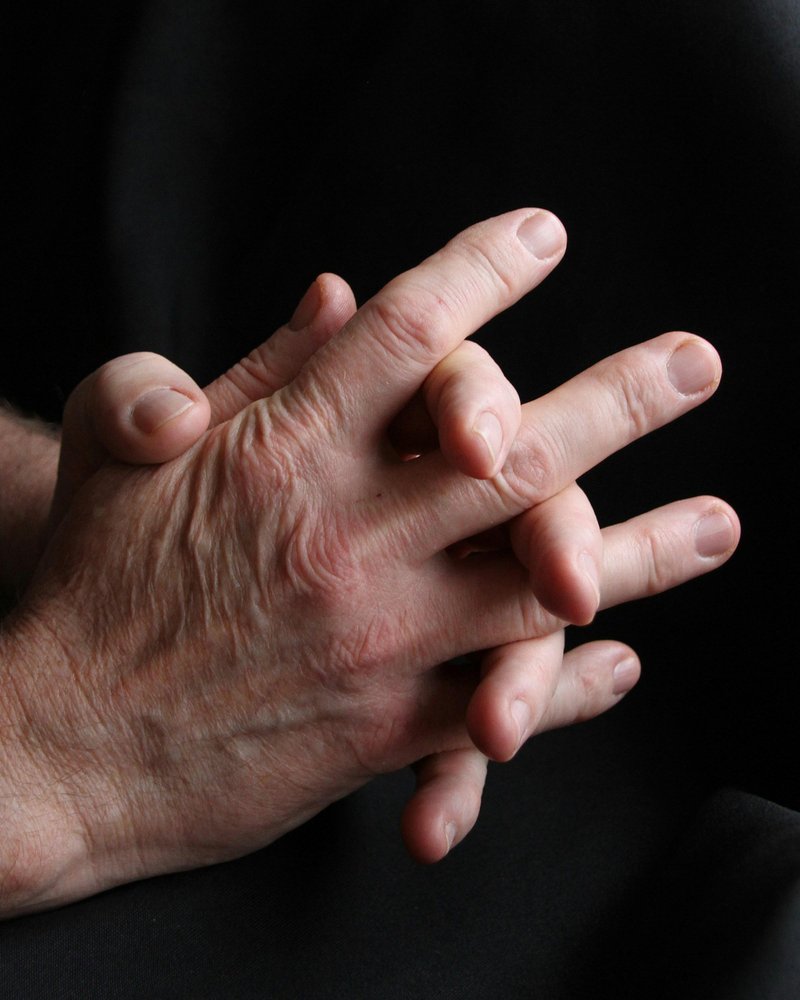Why Your DNA Might Be the Reason You’re Not Gaining Muscle or Libido
Most men chasing higher testosterone levels think only about workouts, diet, or TRT. But there’s a hidden force many forget: your DNA. The relationship between genes and testosterone is one of the most underestimated factors in male hormonal health. Your genetic code shapes how your body produces, processes, and responds to testosterone. And understanding this can change how you approach your own hormone optimization.
Genetic Foundations of Testosterone
Testosterone isn’t just created randomly. It’s synthesized through a tightly regulated process involving your brain, pituitary gland, testes, and enzymes. Key genes like SHBG, SRD5A2, LHCGR, and CYP19A1 dictate how efficiently this chain operates. Mutations or variations in these genes can impact testosterone levels, sensitivity, and conversion into other hormones.
Androgen Receptor Sensitivity and Genes
Even if your total testosterone levels are high, they’re useless if your androgen receptors aren’t sensitive. The AR gene regulates this sensitivity through something called CAG repeats. Fewer repeats mean better response to testosterone. Men with longer CAG repeats often experience low libido, weaker muscle growth, and fatigue — even if their T levels are “normal.”
SHBG and Bioavailable Testosterone
Sex Hormone Binding Globulin (SHBG) is a protein that binds testosterone, making it inactive. Genetics largely control SHBG levels. Some men naturally produce more SHBG, which binds their testosterone and leaves them with lower free (bioavailable) testosterone. This could explain why two men with the same total testosterone feel completely different.
How Genes Affect TRT Response
Some men respond incredibly well to TRT. Others feel nothing. Genes play a big role here. If your body converts testosterone into estrogen rapidly (due to a CYP19A1 variant), you may need an aromatase inhibitor. If your receptors are sluggish, you might need higher doses or alternative therapies. Understanding your DNA helps prevent wasted time and money.
Can You Test Your Testosterone Genetics?
Yes. Many commercial DNA tests now offer reports on genes and testosterone. These tests highlight polymorphisms that affect your androgen metabolism, SHBG production, receptor sensitivity, and DHT conversion. This data can guide smarter decisions — whether you’re going the natural route or considering TRT. For a full view on DHT, read our article on the DHT and libido connection.
How Genetics Influence Puberty and Virility
Some guys hit puberty early, with thick facial hair and deep voices by age 14. Others develop more slowly. These differences are often genetic. The same goes for adult traits like beard density, aggression, libido, and even penis size. While lifestyle still matters, your DNA sets the stage.
Ethnicity, Genetics, and Testosterone
Studies have shown that men from different ethnic backgrounds often have distinct testosterone profiles. For example, African American men tend to have higher testosterone, while Asian men may have more SHBG, reducing free T. These patterns reflect genetic adaptation and should inform your hormone strategy.
Genes Can Influence Your Libido
Some genetic traits influence not just how much testosterone you produce, but how it affects your brain. Libido is a mix of biology and psychology, and genetic polymorphisms in dopamine and serotonin receptors can alter your sex drive. Want to understand your arousal patterns better? Dive into our guide on male arousal cycle explained.
Beyond Genetics: Environment Still Matters
Genes are not destiny. They’re potential. What you eat, how you train, how well you sleep — all these influence how your genes express themselves. This is called epigenetics. Even if you’re genetically predisposed to low testosterone, you can still improve your levels with the right lifestyle changes.
Should You Adjust Your Strategy Based on DNA?
Absolutely. If you’re someone who doesn’t respond well to traditional testosterone boosters, or TRT feels flat, your DNA might be the missing piece. With insights into your genetics, you can personalize your plan for better muscle gain, stronger libido, and overall male vitality.
Want to unleash your full masculine potential without trial and error? Access the complete method here and start optimizing your testosterone the smart way.
Can Genetic Testing Really Help You Build Muscle?
Yes — if you understand how to interpret the data. Some men are genetically more responsive to strength training because of favorable variations in the ACTN3 or MSTN genes. But testosterone sensitivity still plays a role. If your body doesn’t efficiently use testosterone due to androgen receptor gene variants, you may hit plateaus fast, even with solid training. That’s where understanding genes and testosterone becomes a game changer.
What About Natural Test Boosters and Genetics?
Some men swear by natural boosters like fenugreek or D-aspartic acid, while others feel nothing. Your DNA might be the reason. Certain gene variants influence how you metabolize these compounds or whether they even activate key hormonal pathways. A one-size-fits-all stack doesn’t work if your biology isn’t aligned with it.
Low Libido Despite Good Testosterone? Blame Your Genes
This frustrates many men: “My bloodwork looks fine, but my sex drive sucks.” If that’s you, it might be genetic. Polymorphisms in the serotonin transporter gene (5-HTTLPR) or dopamine receptor D4 gene (DRD4) can significantly influence your mental arousal, motivation, and reward processing — all crucial for libido. For a deeper understanding, check out how TRT impacts natural libido.
Epigenetics: The Switch That Activates Your Potential
While your DNA is fixed, how it’s expressed can change based on your environment and behavior. This is the science of epigenetics. Things like chronic stress, poor sleep, lack of sun, and nutrient deficiencies can “turn off” genes that support testosterone production. Conversely, optimizing these factors can activate beneficial genes.
How to Hack Your Genetics for Better Hormones
- Sleep 7–9 hours per night to allow hormonal reset and DNA repair
- Consume enough micronutrients like zinc, boron, and vitamin D
- Train with heavy compound lifts to stimulate T production pathways
- Manage stress through cold exposure, breathwork, or meditation
- Use personalized supplements based on your DNA test insights
Are There “Alpha Male” Genes?
Pop culture loves to toss around the term “alpha male,” but there’s some science behind it. Certain gene clusters influence dominance, aggression, and sex hormone production. While no single gene makes you an alpha, a favorable hormonal profile — supported by genetics — does correlate with traits like confidence, risk-taking, and higher libido.
Using DNA for Sexual Performance Optimization
Sexual performance isn’t just about testosterone levels. Blood flow, nerve sensitivity, and brain arousal all matter — and they’re influenced by genes too. For example, nitric oxide synthase genes affect how well you dilate blood vessels. If your erection quality is inconsistent despite high T, your genetics might offer the answer.
Can You Pass on Low Testosterone to Your Kids?
Yes, to an extent. While lifestyle and environment shape hormone health, your children will inherit parts of your genetic testosterone blueprint. This includes your SHBG levels, androgen sensitivity, and potential for conversion to estrogen or DHT. Taking control of your hormonal health now sets a stronger foundation for the next generation.
Final Words: Don’t Let Your Genes Limit You
Your DNA provides the blueprint, but you control the construction. Understanding your genes and testosterone connection can help you overcome stubborn issues like low libido, weak response to TRT, or disappointing muscle growth. Instead of guessing, take control by decoding your biology and adapting accordingly.
Stop playing hormonal roulette. Start optimizing your testosterone with the full science-backed method built for modern men.
What If You Can’t Afford a DNA Test?
You don’t necessarily need to spend hundreds on genetic testing to apply these principles. Start with observation. Do you gain muscle easily? Are your libido and energy stable, or unpredictable? How do you respond to testosterone boosters or diet changes? These patterns often hint at your genetic predispositions. Combine that self-awareness with good habits and you’ll still outperform 90% of men.
When to Seek Professional Help
If your testosterone levels are low despite doing everything “right,” it might be time for deeper testing — including DNA analysis and a full hormone panel. A hormone optimization clinic can interpret your genetics, adjust your protocol, and help you finally get results. For related insights, read about high estrogen in males and its unexpected impact on male hormones.
Why Most Testosterone Articles Ignore Genetics
Because genetics aren’t easy to fix with a pill. They’re complex, invisible, and unique to each man. But that’s exactly why they matter. If you’re stuck, if you’re tired of chasing hacks that don’t work, if your libido feels dead despite “good numbers” — your genes are the missing puzzle piece. Now you know better.
Summary: How to Align Genes and Testosterone for Results
Knowing your genes and testosterone link puts you ahead of the curve. It lets you stop copying generic advice and start following a personalized path based on how your body actually functions. Whether you’re building muscle, boosting libido, or starting TRT — your genes are the foundation. Build on them with strategy, not guesswork.
Final Insight: Aligning Genes and Testosterone for Real-Life Impact
Don’t rely on guesswork when your biology holds the blueprint. Whether you’re aiming for more muscle, stamina, or confidence in bed, knowing how genes and testosterone work together lets you take targeted action. It’s not about chasing every hack — it’s about unlocking your unique male potential.
Frequently Asked Questions About Genes and Testosterone
Is it possible to fix low testosterone caused by genetics?
Yes. While you can’t change your DNA, you can influence gene expression through lifestyle, supplementation, and strategic hormone therapy. This is called epigenetics.
Can genetic testing help customize a TRT or natural protocol?
Absolutely. Knowing your SHBG, AR gene, and aromatase variants allows your provider to tailor doses, choose the right meds, and predict how your body will respond.
🧬 Genetics vs Lifestyle: Testosterone Optimization
| Factor | Genetics | Lifestyle |
|---|---|---|
| Testosterone Production | Predetermined baseline | Boosted through sleep, diet, exercise |
| Androgen Receptor Sensitivity | Fixed CAG repeat count | Can improve via DHT and zinc |
| Estrogen Conversion | Gene-controlled aromatase | Managed via diet and supplements |
| Libido Response | Dopamine receptor genetics | Influenced by mental health |









